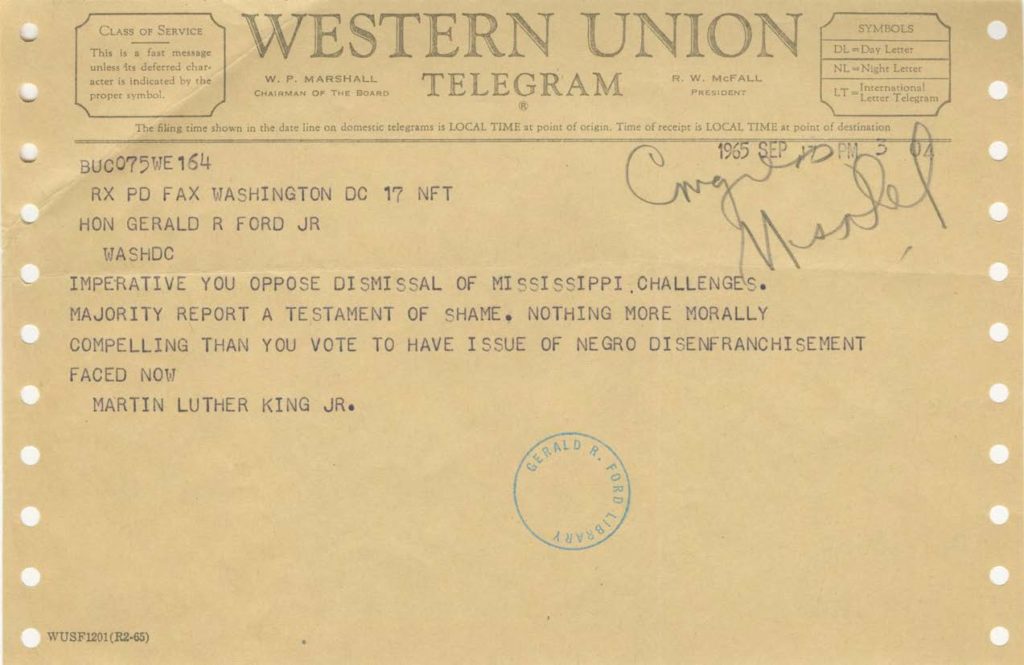Today would have been Dr. Martin Luther King, Jr.’s, 95th birthday. An advocate for nonviolence, Dr. King led the Civil Rights Movement from December 1955 until his death on April 4, 1968.
For the better part of 1965, the Mississippi Freedom Democratic Party (MFDP) had challenged the seating of Mississippi representatives who had been nominated and elected in districts where Black voters were disenfranchised, known as the “Mississippi Challenge.” On September 17, 1965, the House of Representatives convened to vote on a resolution that would end the contested elections (H.R. 585). The Leadership Conference on Civil Rights (of which Dr. King was an executive committee member) adopted the following statement on September 14, 1965, which was made part of the Congressional Record:

Dr. King personally reached out to a fairly new House Minority Leader on the day of the vote.

Courtesy Gerald R. Ford Presidential Library
The resolution was approved by a vote of 228 to 143 (with 61 representatives answering “present” or not submitting votes). Ford voted with the majority, dismissing the challenge, while stating for the Record:
…[T]here are those among us here this afternoon who would want to go off in one direction to an extreme and there are those who would want to go to the opposite extreme. The vast majority of Members of this body on both sides of the aisle, in my judgment, will take a constructive and proper course in the solution of this dispute.
Even though the challenge was dismissed, Congress had recently passed (with Ford voting in favor of) the Voting Rights Act. Signed into law on August 6, 1965, by President Lyndon B. Johnson, the Act banned the use of literacy tests and provided federal oversight of voter registration, which had the effect of increasing voter turnout. For instance, the African American voter turnout in Mississippi increased from 6% in 1964 to nearly 60% just five years later. The Voting Rights Act culminated from the leadership of Dr. King of the Selma to Montgomery March for Voting Rights.
Author: Brooke Clement
